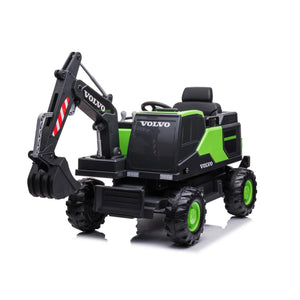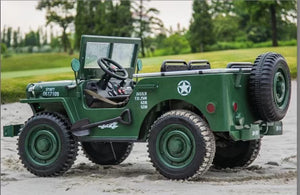
Whether you’re looking for a hoverboard for yourself or for your kid, there is some information you should be aware of before going on your first adventure. Here’s what you need to know before riding a hoverboard.
How To Choose the Right Model
Before you purchase a hoverboard, make sure you’re choosing the right model. Hoverboards are designed with all kinds of uses in mind, so make sure you choose one that has the features you need.
Wheel Size
There are a few different options for hoverboard wheels. They are designed for different age and weight requirements, so keep that in mind when deciding which will fit you best.
Small wheel hoverboards are designed with kids in mind. These wheels have a 6- to 6.5-inch radius. This small radius makes it easier to turn and navigate the hoverboard, which is ideal for little riders. These hoverboards also have a lower center of gravity than the bigger models.
Medium-wheel hoverboards have 8-inch wheels. These can grip different textures, allowing them to move easily on different kinds of terrain. They are also able to climb hills.
Broad wheel hoverboards are designed for adult or teenage riders. These are designed with 10-inch grooved wheels, which have increased stability and traction.
Battery Power
The battery quality of a hoverboard determines how long it will last between charges. If you are planning to use your hoverboard for a long commute, make sure to choose a model that can get you there and back before the battery drains. You don’t want to be carrying your hoverboard back home!
A fully functional battery should last 2 to 3 hours on a single charge. However, keep in mind that other factors can affect battery life, such as temperature and age. Cold weather will sap the battery quicker.
Desired Speed
Most hoverboards average around eight miles per hour. High-powered models can go up to 13 miles per hour. If that doesn’t sound quick enough to you, just remember—it feels a lot faster when you’re actually riding it!
If you’d like a faster model of hoverboard, opt for a high-powered model with broad wheels. This will give you the most traction and speed. However, it takes practice and skill to be able to drive the hoverboard at full speed, so don’t expect to be zooming on day one.
Quality and Durability
As with most things, higher-end models will have a longer lifespan. If you’re planning to ride your hoverboard frequently, it may be worth investing in a higher-end model that will stay functional for longer. If you only ride it recreationally, buying a less expensive model might suit you just fine. It really depends on how much you plan to use your hoverboard and how long you’d like it to last.
Travel Distance
When looking at purchasing a hoverboard, be sure to check out its range. The range is how far the hoverboard is able to go on a single charge. Most standard hoverboards have a range of 10 to 15 miles. Higher-end models have a higher range, from 13 to 17 miles per charge.
Be sure to keep the range of the hoverboard in mind if you’re planning to use it to commute to work or school. If your board can’t make it round trip, you can always bring the charger along with you and charge it during the day.
Weight Capacity
Hoverboards have weight capacities depending on their wheel and battery sizes. Hoverboards designed for children will have smaller weight capacities, so be aware that your child might outgrow their board at some point.
A hoverboard’s maximum speed is affected by the rider’s weight; most hoverboards have a weight limit of 220 pounds. However, broad-wheeled hoverboards with higher-performance batteries can accommodate larger individuals.
How To Ride It
Now that you have your hoverboard, it’s time to learn how to ride it. After setting it up and giving it the initial charge, find a flat, smooth surface to set it on, and turn on the hoverboard.
Next, simply step on the hoverboard, just like stepping onto a stair. Step your second foot up as well. If you wobble and fall off the board, that’s okay! It will take a few tries to get it right. A wide stance will help you be more stable, so set your feet far apart once you’re on the board.
Hoverboards move with you—you’ll need to lean to tell it where to go. When you’re ready to move, lean forward slightly to go. The further forward you lean, the faster you’ll go, so be sure to start slowly.
To turn right, point your right foot down. To turn left, push down with your left foot. Leaning backward will make you go backward. The mechanisms to steer the hoverboard are fairly intuitive, but it will take some practice to get them right. Once you get them down, they will become second nature, just like riding a bike.
To get off the hoverboard, simply step off backward. Don’t jump off or step forward, as this could cause you to fall.
Recommended Safety Gear
As with riding a bicycle, you should always wear a helmet while riding your hoverboard. This will prevent any head injuries if (when) you fall. For additional protection, consider getting wrist guards and elbow and knee pads. The pads will prevent you from scraping up your arms and legs when taking a tumble, and the wrist guards can even prevent you from breaking a wrist.
To prevent road rash and other nasty injuries, it’s also a good idea to wear long pants and long-sleeved shirts while hoverboarding. A heavy material like denim will protect your skin better in the event of a fall; lighter fabrics like cotton might just tear.
Riding hoverboards together can be a great way to bond with your kid. If you’re both interested in trying out this cool new sport, give it a shot and spend some quality time together.
If you’re interested in buying a hoverboard for your kiddo, Elegant Electronix has some of the best electric ride-on toys for big kids. Just be sure to have them read this guide before taking off, so they know exactly what they need to do before riding their hoverboard.






















